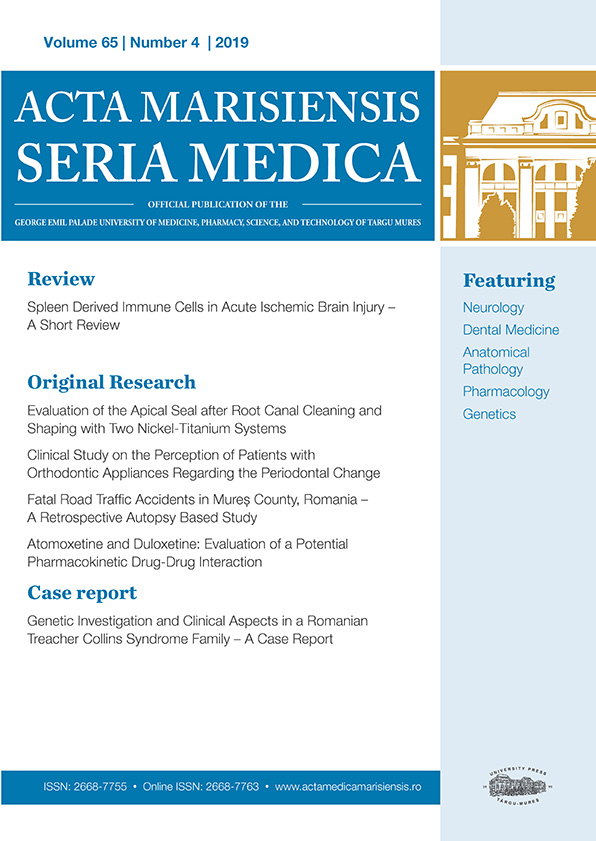Beyond the Gut - Atypical Presentation of Salmonella spp. Infection
DOI:
https://doi.org/10.2478/amma-2024-0014Keywords:
pleural empyema, Salmonella, extraintestinal salmonellosisAbstract
Salmonella is a Gram-negative, non-spore-forming, motile, facultative anaerobic rod. The most studied species are Salmonella typhi and paratyphi (causing typhoid fever) and non-typhi Salmonella species (which can cause different clinical syndromes - gastroenteritis, disseminated infections, etc.).
A 61-year-old male patient with multiple comorbidities (including myelofibrosis) presented to the Pulmonology outpatient department, Clinical County Hospital of Târgu Mureș, with a mucopurulent nocturnal cough. Paraclinical examinations showed the presence of a pleural empyema, which was evacuated in local anesthesia. The pleural fluid was sent to the Microbiology Department for bacteriological testing, where a fluoroquinolone-resistant strain of Salmonella spp. was detected. The patient received antibiotic treatment according to the antibiotic susceptibility testing. Due to the persistence of the symptoms, the patient returned two weeks later, when another puncture was performed. Salmonella was isolated again, but the strain showed a higher resistance to antibiotics. The two strains were compared using molecular methods of diagnosis (ERIC-PCR), the results showing a similarity of 92%. The occurrence of an extra amplicon band in ERIC-PCR suggests an important change in the bacterial genetic material, potentially related to acquisition of antibiotic resistance factors.
Downloads
Published
How to Cite
Issue
Section
License
Acta Marisiensis Seria Medica provides immediate open access to its content under the Creative Commons BY 4.0 license.









